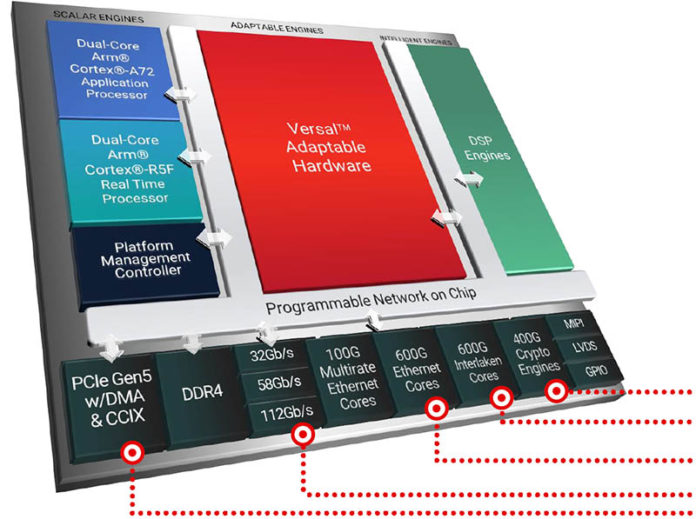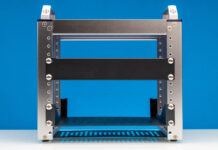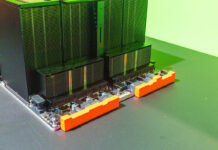Xilinx has a new platform for signal processing, called the “AMD Xilinx Versal Premium ACAP with AI Engines”. Seventeen syllables later, we have the description for the FPGA that is key to AMD’s edge strategy. This is a chip that is designed for a range of applications and with a new feature, specifically, the Xilinx AI Engines adding AI acceleration to this segment.
AMD Xilinx Versal Premium ACAP with AI Engines Launched
This class of what would traditionally be a FPGA is intended to be designed into products that need high degrees of both flexibility as well as a lot of I/O and processing. For example on the I/O side, the new ACAP (what AMD-Xilinx now calls its newest FPGAs) has 9Tb/s of serial bandwidth.
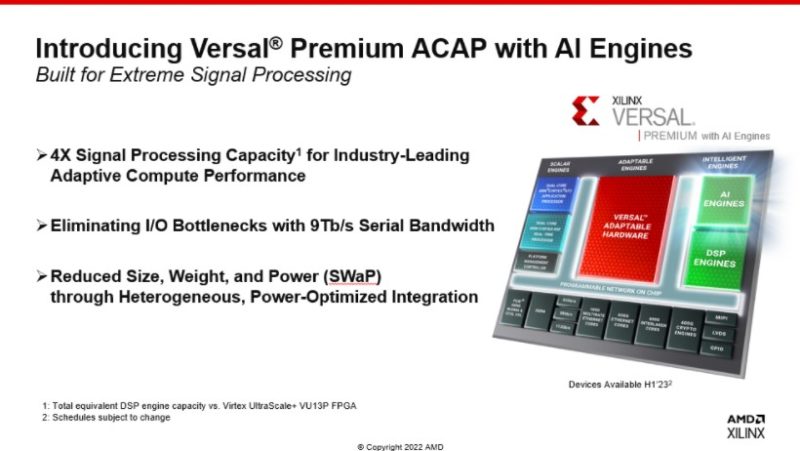
Just to give our readers some idea about what these products are for, here is the market slide. As you can see, these are longer design-cycle and lifecycle applications than we typically see in the server market. Or in other words, these ACAPs are designed for signal processing applications.
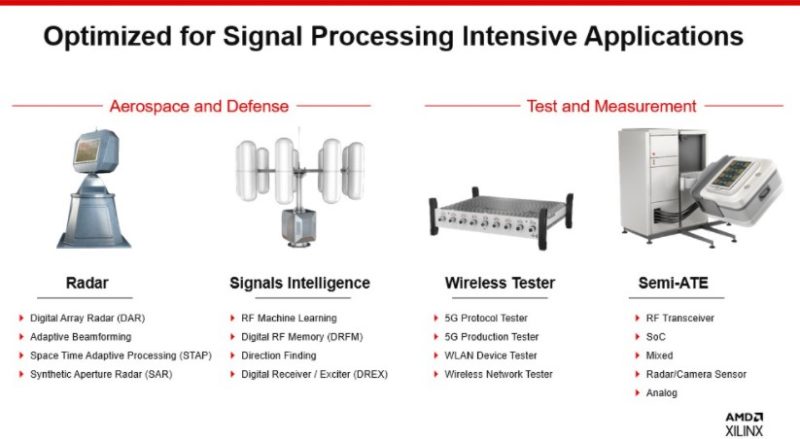
Here is the block diagram for the Versal Premium ACAP for a radar application. What is very interesting here is the “AI Engines” block that has things like beamforming. With its 7nm Versal product line Xilinx added AI acceleration. It is now bringing that on-chip. This is similar to how we see AI acceleration in other segments and is something that we expect will be more common in the coming generations of chips.
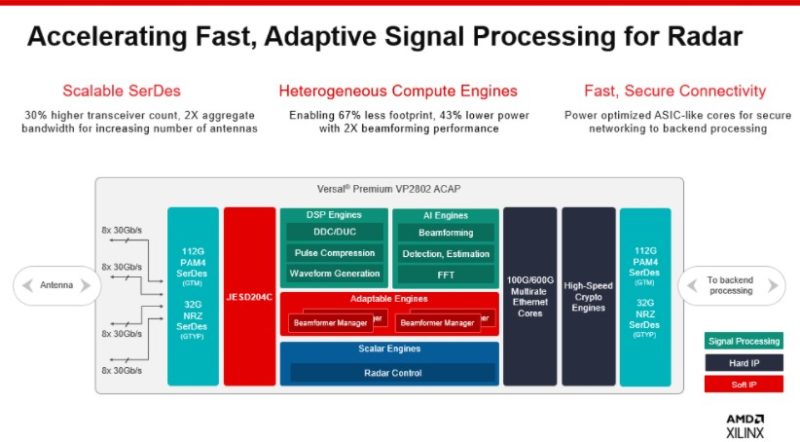
Xilinx has some numbers about its chips versus its previous generation as well as the Intel Agilex 10nm line. As a “small industry” aside, the former head of Intel’s FPGA business is now running EPYC at AMD. Still, realistically a lot of customers will have engineers that are accustomed to either Intel-Altera or AMD-Xilinx ecosystems and that familiarity also comes into play with the markets for these chips.
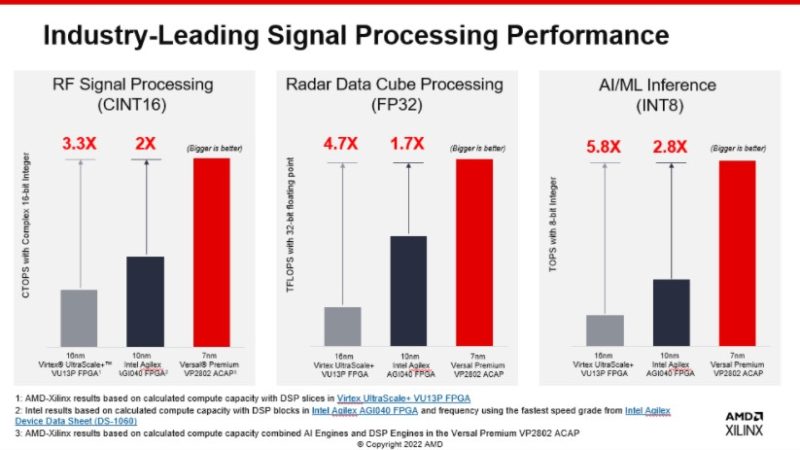
Xilinx wants you to know that “Bigger is better”.
Final Words
While we are going to have a small segment of readers that will be using this type of product, there are two takeaways we want to impart. First, this is another segment where an AI accelerator is making its way into chips to provide higher performance per watt and die area. Second, AMD’s plan for the edge and the embedded markets should be clearer with this chip. Instead of seeing a Zen-derived architecture, AMD has an Arm-controlled FPGA with accelerators and high-speed I/O. There is still some time to wait since the Xilinx Versal Premium ACAP with AI Engines is slated for 1H 2023 availability.

